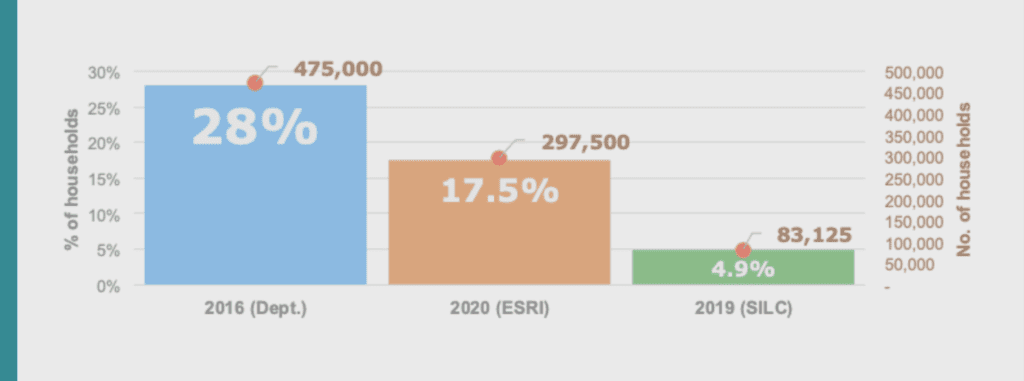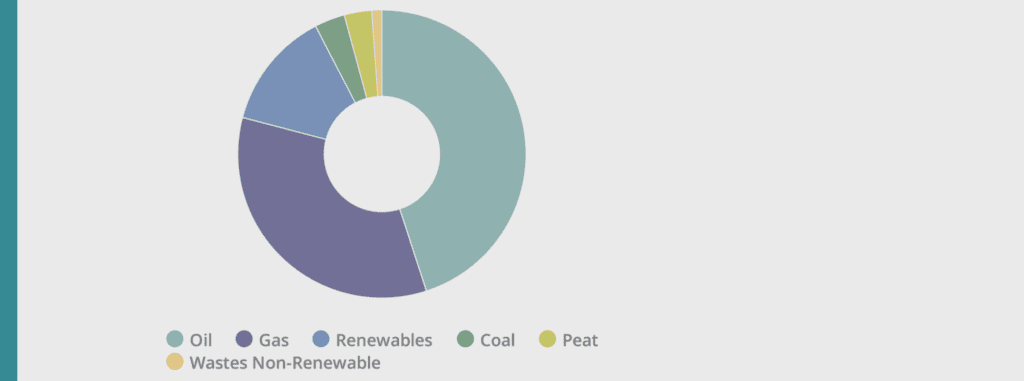Ireland’s Energy Poverty Strategy estimates that the rate of households experiencing energy poverty in the country falls between 8.8 – 28%, depending on whether this is based on self-reported inability to heat or derived from modelled expenditure and building energy rating data (DCENR, 2016).
In 2016, this upper estimate would have been equivalent to 475,000 households. More recent research produced by the Economic and Social Research Institute (ESRI) in 2020 revises this figure, estimating ‘core’ energy poverty to be 17.5% of households throughout Ireland, approximately 297,000 in total (ESRI, 2020). Similarly, the Survey on Income and Living Conditions (SILC) indicates that the proportion of those who self-report being unable to afford to heat their homes has fallen from 9% in 2015 to 4.9% in 2019 (Oireachtas Library & Research Service, 2020a). As can be deduced from these variable estimates, it is relatively difficult to discern a true picture of the levels of energy poverty throughout Ireland.

Ireland’s economy is strongly reliant on fossil fuels, with 86% of all energy used in the country stemming from fossil fuel-based sources in 2010. The residential sector is the second-largest source of energy demand in the country, behind the transport sector, as of 2020 (SEAI, n.d.). Ireland is currently in the process of attempting to transition to a low-carbon energy system, which presents several challenges for the country, namely energy security, meeting climate commitments, energy costs, sectoral issues and challenges around physical infrastructure development and employment opportunities: In terms of energy security, Ireland has a heavy reliance on external sources of energy. Energy imports cost Ireland a total of €3.4 billion and €4.0 billion in 2016 and 2017. International developments like the war in Ukraine and Brexit are likely to have an impact on Ireland’s energy security in future.

As of 2022, electricity prices in Ireland were 26% above the EU average, coming in behind only Germany, Belgium and Denmark (Eurostat). Ireland was identified as the eight most expensive country in the EU for gas. Compared to the EU average, however, energy is one of the few areas where Irish citizens are taxed relatively lightly. However, the Carbon Tax as part of Budget 2021 included an increase of €7.50 from the previous €26 per tonne to €33.50 per tonne for auto fuels from October 2020 and solid fuels from May 2021; this will continue up to 2030 (Ireland’s EU emissions target). The price hikes have had an effect on gas and diesel, as well as electric power stations driven by gas, and will impact the Irish public; the government has subsequently introduced €200 refund credits to all householders on their recent fuel bills which will be drawn down from the Carbon Tax Funds (Eurostat).
